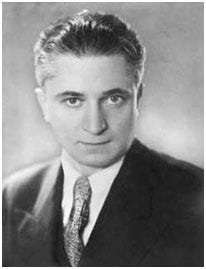Continuing the post from last two weeeks and last week— if you haven´t checked it out, it may be interesting to do so.
Fernand Braudel
Fernand Braudel (vivabat 1902-1985) views civilisations as geographic units: such as the Islamic world, Black Africa, China, India, Japan, Maritime Far East ( thereby understanding Korea and the entirety of Southeast Asia)1. The European civilisation is divided into Europe proper, North America, Latin America and the Russian sphere in his model. He views civilisations from the perspective of the longue durée, perhaps conditioned by an unchanging geography, which leads him to a similar division as in the previous model by Jeff Jones.

David Engels
The civilisation topic is also touched by David Engels, chairman of the Spengler Society. Applying Hegel´s model of thesis-antithesis-synthesis onto Spengler´s scheme, he distinguishes three major phases in the development of each civilisation, also enriching the Spenglerian model in the process2.
Kelley Ross
One of the contemporary authors, on whose works I had stumbled upon the earliest was the American Kelley Ross3, who elaborated the philosophy of history on the web pages of the Proceedings of the Friesian School4. He divides the contemporary world into four civilisations: Europe, Islam, India and China. He classifies Sumer and Akkad, Egypt, Mesoamerica and the Andes among the extinct civilisations. The foundation stone of his philosophy of history is the Roman Empire. He even goes as far as to divide the index of world history into pre-Roman rulers, Rome and Romania , Successors of Rome, and Empires outside Rome. In this scheme, the European continent lies divided into three cultural regions of the successor of Rome: Francia (what Toynbee understands as the Western Civilisation), Rhomania (using the autochtonous name for what is commonly known as Byzantium) and Russia.
Rudyard Lynch
The young American historian Rudyard Lynch, author of the WhatIfAltHist YouTube channel focuses on the questions of history, civilisations and anthropology in his videos, as well as explaining the characteristics of various civilisations5.
With this, we have concluded our series exploring the catalogues of civilisations by various scholars and next week we will dive into a comparison between them
BRAUDEL, Fernand: A History of Civilizations, See at archive.org in English or in French
ENGELS David:Is a Universal History Possible? Invited Lecture, Oxford, Pusey House, 22.05.2024. The topics relevant to the table are being discussed roughly since 20:00
This essay was actually the earliest that I had come across in this field, found it printed in my Dad´s notebook suitcase when I was roughly ten and was the gateway to my interest in the study of civilisations, however for quite some time this interest lay largely dormant. After many years I had later stumbled across the web site and was eager to find out more, checking out the carefully drawn schemes and philosophy of history.
LYNCH, Rudyard: WhatIfAltHist, link to the first of the series of civilisation videos







